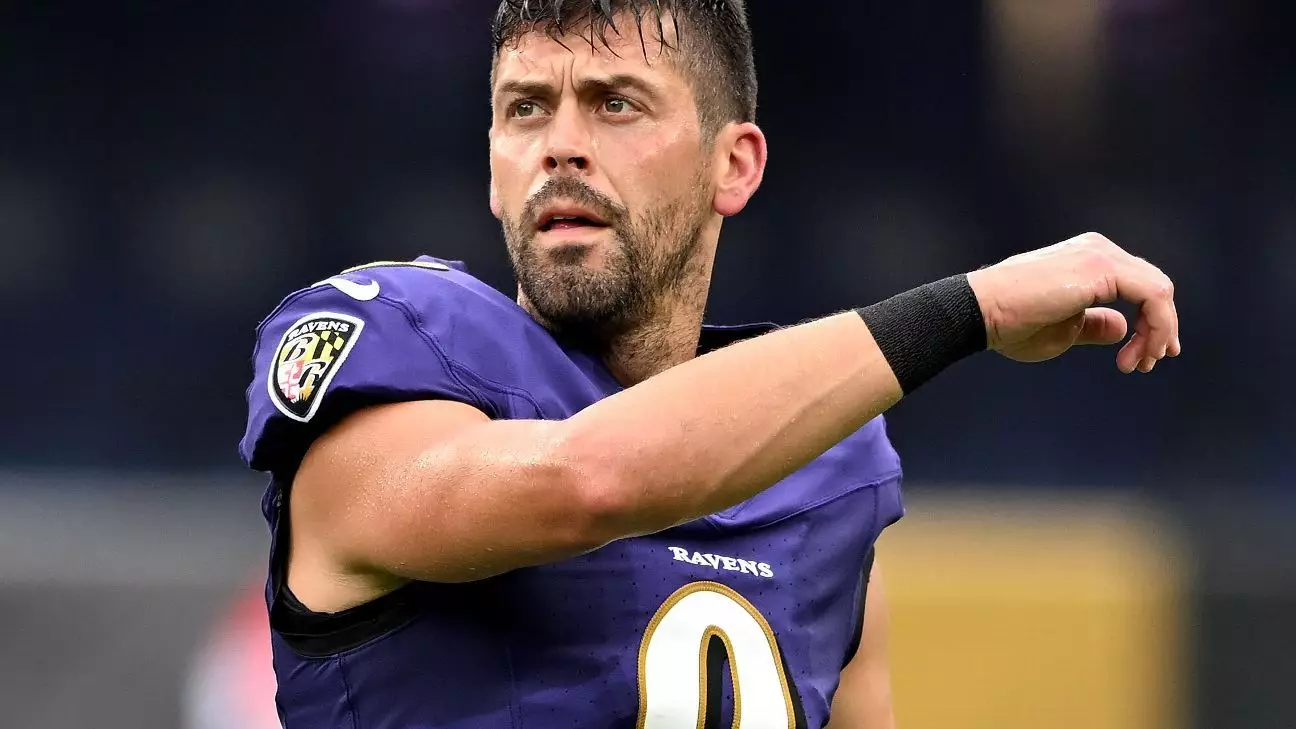Justin Tucker, once revered as the NFL’s most reliable kicker, now faces a significant and deeply troubling setback. The league’s announcement of a 10-week suspension due to violations of the personal conduct policy has sent ripples across football communities and beyond. This development is a disheartening culmination of serious allegations dating back nearly a decade, involving multiple claims of sexual misconduct. While the NFL’s punishment marks some form of accountability, it exposes profound flaws in how sports institutions handle misconduct allegations—particularly those involving powerful athletes.
The Past Shadows Tucker’s Career Amid Shifting Accountability
Between 2012 and 2016, during the peak formative years of Tucker’s career, 16 massage therapists across eight upscale Baltimore wellness centers have accused him of sexual misconduct. These allegations, verified through the NFL’s investigation, paint a disturbing picture that starkly contrasts with Tucker’s pristine on-field reputation. The league’s investigation leading to his suspension and subsequent release from the Ravens forces us to confront an uncomfortable reality: elite athletes often manage to cultivate a near-untouchable image, insulated from accountability despite serious accusations.
Yet the suspension itself—10 weeks—feels insufficient given the gravity and number of complaints. It highlights a troubling pattern in professional sports where punitive measures often fail to reflect the severity of the misconduct, especially when involving elite or marketable players. Tucker’s agent’s statement downplays the consequences by emphasizing a desire to move past the issue quickly, a tone that prioritizes career preservation over justice and healing for victims.
The Victims’ Voices: Beyond the Headlines
The most crucial perspective often gets lost in such high-profile cases: the victims. Massage therapists who endured the alleged abuse have boldly spoken out, underscoring the lifelong impact of their experiences. Their condemnation of the suspension as “the bare minimum” and criticism of Tucker’s refusal to accept responsibility illuminate a painful betrayal of trust and power imbalance.
This disconnect between the NFL’s disciplinary action and the lasting trauma of victims reveals a significant ethical failing. The league’s response, while a step forward compared to years past, still falls short of a meaningful reckoning. It also symbolizes how institutions frequently prioritize public relations and athlete performance over the well-being and dignity of survivors.
Media Narratives and the Culture of Denial
Tucker’s outright denial and dismissal of media coverage as “desperate tabloid fodder” demonstrate an entrenched culture of denial that too often accompanies allegations of misconduct in professional sports. The defense tactic of attacking victims’ credibility not only retraumatizes those affected but also perpetuates a system where public scrutiny is redirected from accountability to character assassination.
The silence or minimal acknowledgment historically enforced by fans, franchises, and even fellow players enforces a toxic cycle of protectionism within sports. This incident should force a reckoning with how celebrity athletes handle their status and the moral responsibilities that come with it.
The NFL’s Structural Problems and the Limits of Suspensions
The NFL’s handling of the Tucker case throws into stark relief systemic issues in how personal conduct violations are addressed. The suspension allows Tucker to remain active in the league relatively soon, with opportunities to train and prepare physically while absent from games. This conditional punishment, paired with his ability to continue seeking employment, diminishes the severity of consequences.
Moreover, Tucker’s release by the Ravens, while seemingly a bold move, raises questions about timing and initial tolerance. The team’s decision to part ways only after an official investigation concluded may reflect a broader hesitancy within franchises to take a firm ethical stance absent legal or league pressure.
Why This Matters Beyond Football
This saga transcends the confines of sports. Justin Tucker’s suspension and the circumstances surrounding it speak to wider societal struggles with confronting abuse, believing survivors, and ensuring justice in environments marked by power imbalances. The NFL, as a cultural powerhouse, has a responsibility not just to penalize but to actively dismantle the protections that enable such misconduct.
For fans, athletes, and organizations alike, this should prompt a reevaluation of what success and integrity mean. Celebrating athletic prowess must not blind us to the ethical character athletes display off the field. The NFL—and sports as a whole—must shift towards prioritizing human dignity and accountability to genuinely evolve. Until then, suspensions like Tucker’s, however necessary, will remain frustratingly incomplete acts of justice.



Leave a Reply